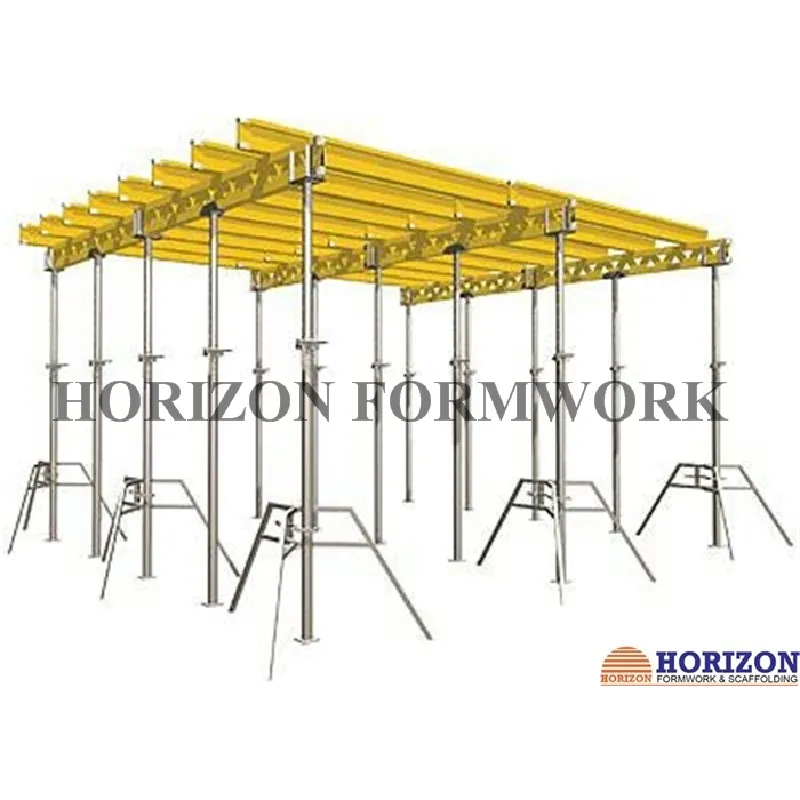Feb . 24, 2025 09:59 Back to list
Role of Formwork Systems in Residential Construction
Wooden formwork remains a popular choice in formwork construction due to its affordability, adaptability, and ease of use. For residential buildings, wooden formwork is ideal for creating foundations, walls, and intricate structural elements. Its lightweight nature allows for easy handling and quick assembly, making it a cost-effective option for smaller-scale projects. While wooden formwork requires proper maintenance to ensure longevity, its ability to be customized for various shapes and sizes makes it a reliable choice for residential construction.

Steel Formwork: Durability for Long-Term Residential Structures
For projects requiring a robust and reusable solution, steel formwork is the go-to option in formwork construction. Its strength and durability allow for the construction of sturdy foundations and walls that can withstand significant loads. Steel formwork offers excellent reusability, making it cost-efficient for projects involving multiple phases or buildings. Additionally, its smooth surface finish reduces the need for additional plastering, saving time and labor costs. By using steel formwork, builders can achieve precise results, ensuring the structural integrity of residential buildings.
Innovative Formwork Construction Techniques for Residential Walls
The advancement of formwork construction techniques has streamlined the process of building residential walls and structural elements. Systems like modular formwork allow for faster assembly and consistent results, particularly in creating straight and curved walls. These systems, made from high-quality formwork materials such as wood, steel, or composite plastics, ensure uniformity while reducing construction waste. By integrating advanced technologies, formwork construction enables builders to meet tight deadlines without compromising on quality or safety standards.
Selecting the Right Formwork Material for Residential Building Foundations
Choosing the appropriate formwork material is critical for achieving a successful foundation in residential construction. Wooden and steel formworks each have unique benefits, and the choice depends on factors such as project size, budget, and design complexity. While wooden formwork excels in cost-effectiveness and adaptability, steel formwork offers superior durability and reusability for larger or more demanding projects. Innovations in formwork materials, including eco-friendly and lightweight alternatives, are also expanding options for builders who prioritize sustainability and efficiency.
The effective use of wooden formwork, steel formwork, and advanced formwork materials is integral to constructing foundations, walls, and structural elements in residential buildings. Each system offers unique advantages, allowing builders to customize their approach based on project requirements. As technology and material innovation continue to evolve, formwork construction remains a cornerstone of modern residential construction, ensring stability, efficiency, and quality in every build.
-
Timber Beam H20 for Agricultural Buildings
NuusJul.21,2025
-
Tie Rod Concrete Formwork for Bridge Construction
NuusJul.21,2025
-
Table Formwork for Slab Edge Protection
NuusJul.21,2025
-
Load Calculations for Wall Formwork System
NuusJul.21,2025
-
Concrete Column Form Work Systems Productivity Tips
NuusJul.21,2025
-
Beam Slab Formwork for Ribbed Slabs
NuusJul.21,2025